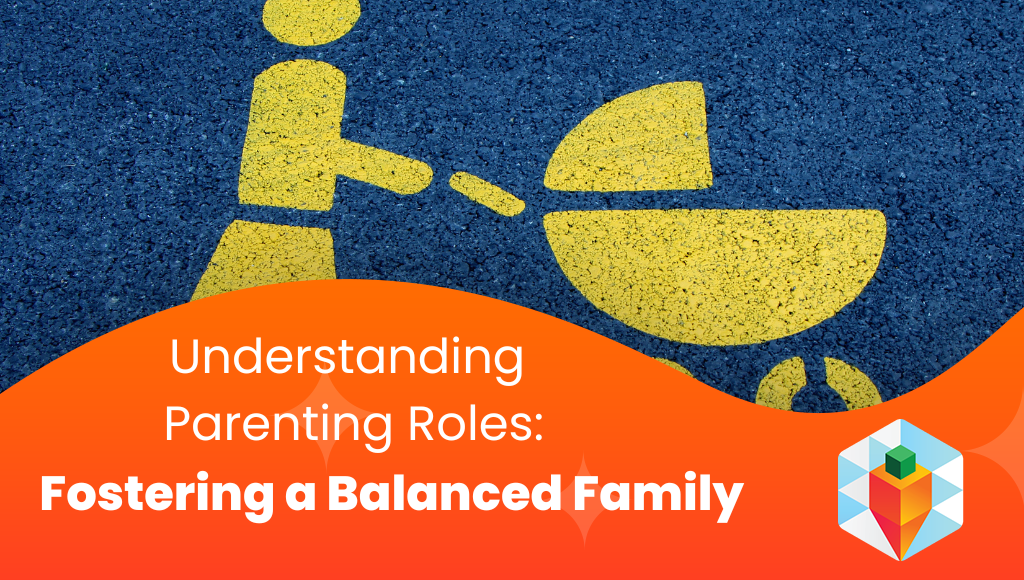



Parenting roles play a crucial part in shaping the emotional, social, and cognitive development of children. Finding a suitable harmony between care and organization can have an immense influence on your kid's prosperity. In this blog post, we will delve into understanding these roles and provide tips for finding a healthy equilibrium that supports child growth.
We will also explore different parenting styles such as authoritative, authoritarian, permissive, and uninvolved parenting to help you recognize their unique characteristics. Additionally, we'll discuss how cultural factors influence these approaches to offer insights on adapting your style based on diverse contexts.
Lastly, our discussion will cover adapting your parenting style to unique situations by examining factors influencing your choice of approach and providing practical tips for navigating shifting roles within your family dynamic. By understanding various aspects of parenting roles better, you can create an environment where both you and your child thrive together.
Striking an appropriate balance between these two aspects is vital as excessive nurturing or structuring may lead to spoiled or self-centered individuals who lack the necessary life skills. In this section, we will discuss the importance of balancing responsibilities and fostering a collaborative family dynamic.
Nurturing refers to providing emotional support, love, care, encouragement, empathy, and understanding for your child. This helps them develop a sense of security that fosters healthy emotional development. On the other hand, structuring involves setting boundaries by teaching values like discipline and responsibility through rules enforcement. It also includes guiding your child towards achieving their goals while helping them understand the consequences.
Finding an appropriate balance between nurturing and structuring roles can be challenging but essential for raising well-rounded children who possess healthy life skills. By understanding these different aspects of parenting, evaluating your own style, communicating openly with co-parents, creating supportive environments, and maintaining consistency throughout their upbringing, parents can foster positive development in their kids raised under such balanced conditions.
Parenting roles are essential for the growth and well-being of children, necessitating a balance between supportive and directive approaches. Moving on, let us explore how different parenting styles can shape our approach to raising kids.

Understanding the various parenting styles can help you identify your own approach and make adjustments if necessary. Based on Diana Baumrind's work, researchers have identified four main parenting styles: authoritative, authoritarian, permissive, and neglectful/uninvolved. Each style has its unique characteristics that impact children's mental well-being differently.

It's essential to recognize that cultural contexts play a significant role in shaping parenting styles. For example, research has shown that some children from collectivist cultures may benefit more from authoritarian parenting than their counterparts raised in individualistic societies. This is because the emphasis on obedience and respect for authority figures aligns with the values of these communities.
In addition, it's crucial to remember that no single style works best for every family or child. Factors such as your own upbringing, personal beliefs, and your child's unique temperament can influence which approach will be most effective for you.
To better understand how different parenting styles impact children's behavior and development, consider using tools like the Carrots&Cake app. Developed by parents alongside doctors, teachers, and scientists; this parental control learning app helps kids develop healthy digital habits while offering valuable insights into fostering positive parent-child relationships.
Grasping the diversity of parenting techniques is essential for comprehending how to give your kids the best assistance. With this knowledge, it's possible to adapt and tailor your approach for unique situations that arise within the family dynamic.
No single method of parenting works in all cases; parents must be able to modify their approach depending on the circumstance. Parents should adapt their style depending on the situation by considering factors such as their own childhood experiences, preferences of co-parents, and the unique needs of each child. Francyne Zeltser emphasizes flexibility in adjusting parental roles according to various situations while maintaining consistency in terms of values and expectations.
To navigate shifting roles within your family effectively, consider these factors that may influence your preferred parenting style:
Finding the balance between different parental authority dimensions can be challenging but essential for fostering healthy parent-adolescent relationships. Here are some tips to help you adapt as needed while still providing consistent support for children's behavioral autonomy development:
Incorporating these tips into your daily interactions with your kids will help you adapt your parental control methods according to unique situations without sacrificing consistency or effectiveness. Remember that maintaining a balance between nurturing care and structure is key for promoting healthy child development within diverse family dynamics.
Parenting is a multifaceted role that involves providing love, support, guidance, and discipline to children. It also includes setting boundaries and expectations for behavior, teaching social skills, instilling values, and promoting physical health. Parents have the task of aiding their children in developing autonomy and sound judgment so they can flourish as adults. Ultimately, parenting is about establishing a habitat in which children can develop into content and thriving persons who possess the necessary skills to be triumphant in life.
Parents are responsible for teaching their children about the world around them, and how to interact with it safely and responsibly.
Children learn from observing their parents’ behavior; setting a good example is essential in helping kids form positive habits and values.
Parents should be active promoters of their child's welfare, guaranteeing they have access to high-quality healthcare, instruction, nourishment, security, and so forth.
Parents must shield their children from all forms of danger, be it physical or emotional, by creating a secure home atmosphere that is devoid of any form of abuse.
Providing basic necessities such as food, shelter, and clothing are key responsibilities of all parents in order to ensure that children can grow into healthy adults who contribute positively to society.
Establishing boundaries while maintaining an open dialogue with your child allows you to instill discipline without damaging your relationship with them.
Last but not least, being there when needed gives kids the security they need during difficult times; this could include anything from listening attentively during tough conversations, offering advice when asked, or simply giving a hug when needed.
Parenting is an essential role in a child's development. It plays a crucial part in helping children learn important values, such as responsibility and respect for others. By providing guidance and support, parents can equip their children with the tools to make informed decisions that will benefit them in the long run. Parental engagement can foster in kids the capacity to handle social scenarios, resolve issues, cultivate self-confidence and emotional intelligence, as well as bolster their resilience which will serve them well academically and professionally down the road. Parenting is an essential component in aiding children to reach their highest possible capacity.
Ultimately, it is vital to bear in mind that parenting duties can be intricate and continually evolving. It's essential for parents to recognize their own style of parenting and adjust accordingly when needed. By finding the right balance between nurturing and structuring roles, parents are able to provide a supportive environment in which their children can thrive while developing healthy habits that will last into adulthood. Ultimately, by understanding our individual approaches toward parenting roles, we can create an atmosphere where everyone feels safe, secure, respected, and loved.






